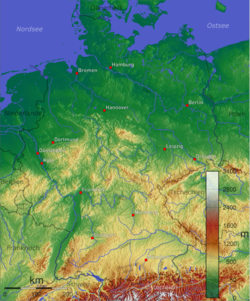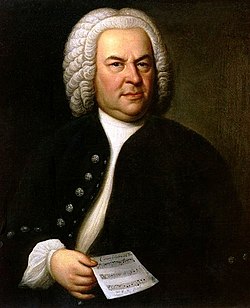

The following outline is provided as an overview of and topical guide to Germany:
Contents
- General reference
- Geography of Germany
- Neighbours of Germany
- Environment of Germany
- Administrative divisions of Germany
- Demography of Germany
- Government and politics of Germany
- Branches of the government of Germany
- Foreign relations of Germany
- Law and order in Germany
- Military of Germany
- Local government in Germany
- History of Germany
- History of Germany, by period
- History of Germany, by region
- History of Germany, by subject
- Culture of Germany
- Art in Germany
- People of Germany
- Religion and belief systems in Germany
- Sports in Germany
- Economy and infrastructure of Germany
- Energy in Germany
- Education in Germany
- Health in Germany
- See also
- References
- External links
Germany– federal parliamentary republic in Western-Central Europe consisting of 16 constituent states (German : Bundesland), which retain limited sovereignty. Its capital and largest city is Berlin. With more than 80 million inhabitants, it is the most populous member state of the European Union (EU). Germany is a major economic and political power of the European continent and a historic leader in many cultural, scientific, and technological fields.
After losing World War I, Germany fell under the control of Adolf Hitler, who started World War II. After losing World War II, Germany was divided into East Germany and West Germany, each on opposite sides during the Cold War. In October 1990, after the Cold War ended, the country was reunified under Christian Democratic Union (CDU) chancellor Helmut Kohl. As of December 2023, Germany has grown to become the world's third-largest economy by nominal GDP.













